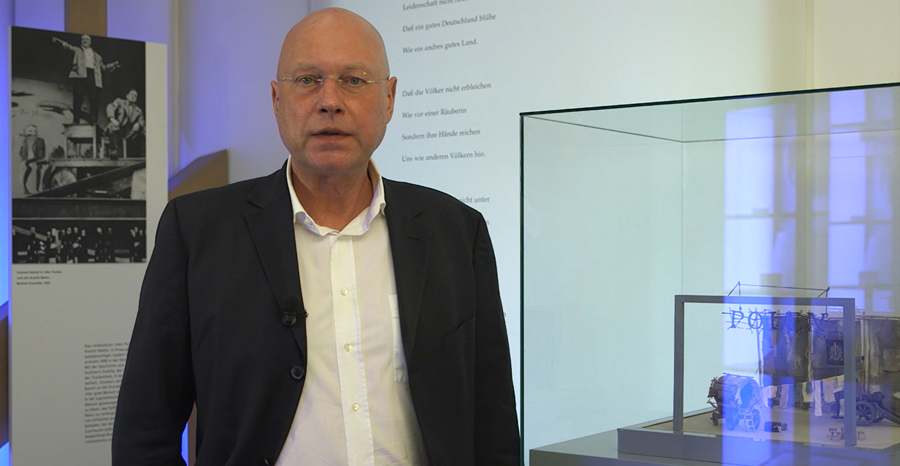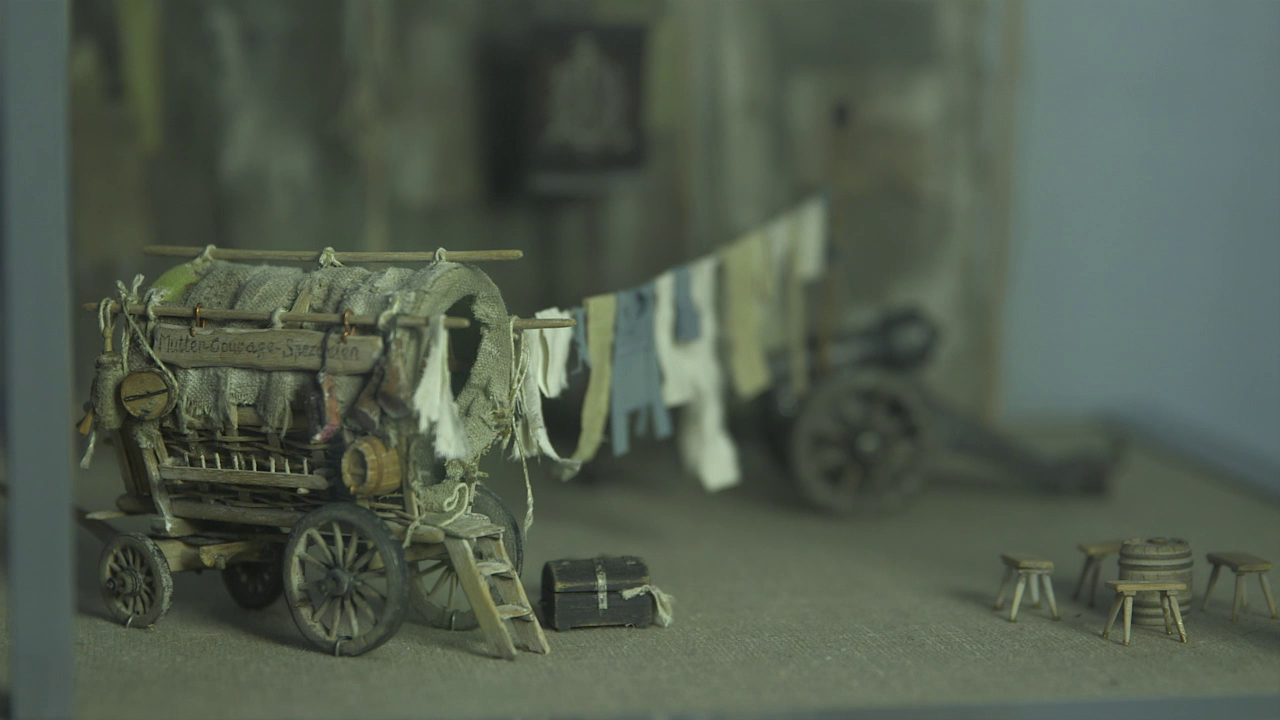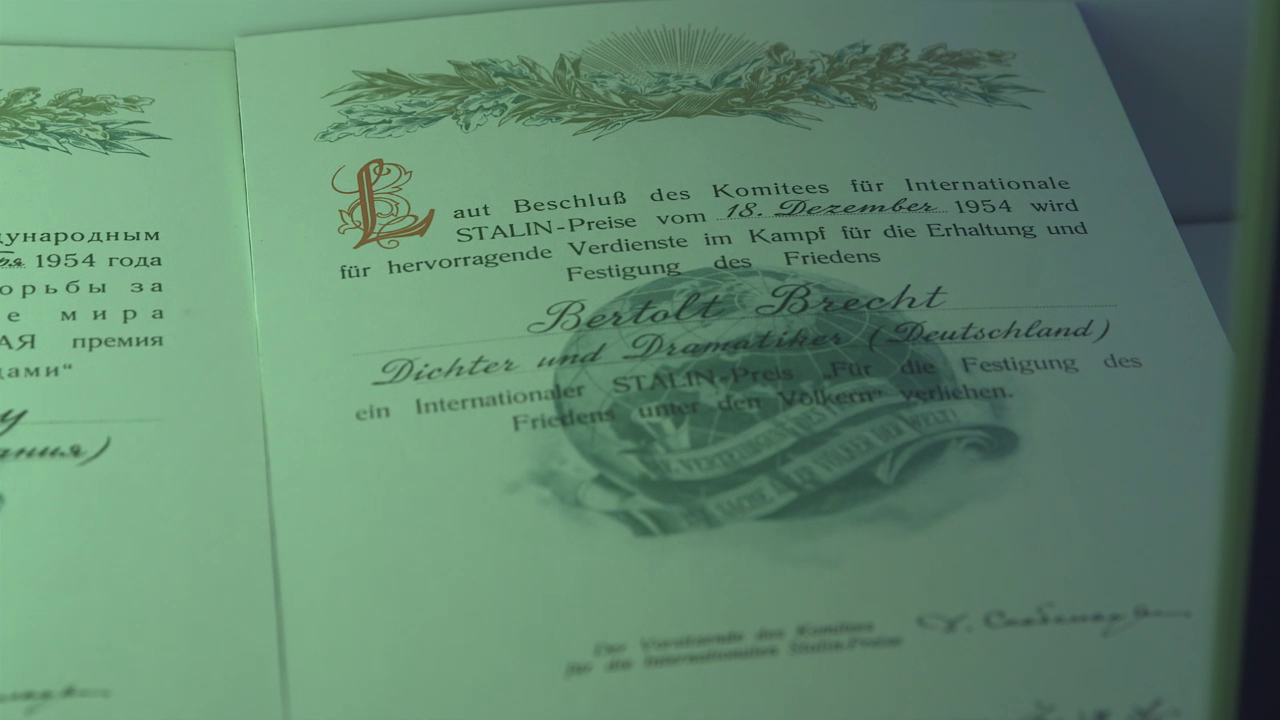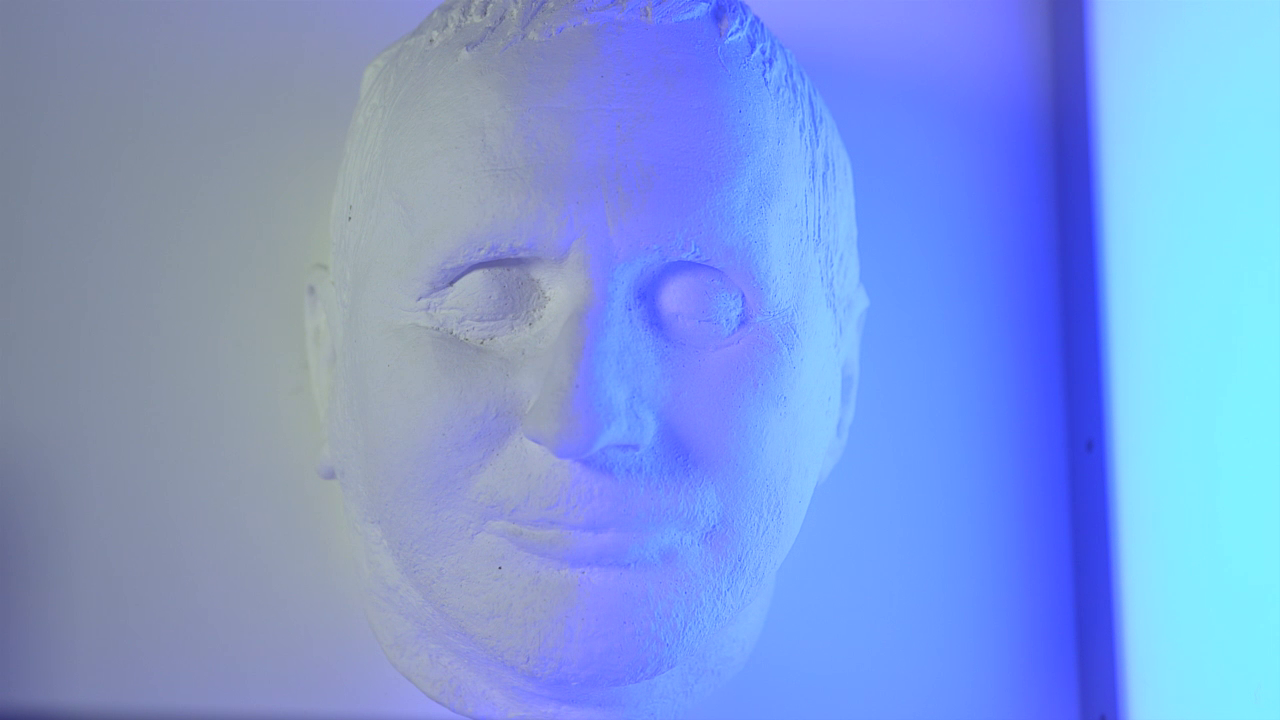ROOM 5

Brecht's life in Berlin after his exile.
Brecht's creative period after his return from exile to his death.
Brecht wrote his most famous plays during his time in exile. After returning to Europe – to Berlin via Switzerland – he kept his own theatre company, the famous “Berliner Ensemble”, which was formally directed by his wife, Helene Weigel. He used this company to stage the famous “model productions” of his own plays, recording them in photographs in minute detail. This room documents two of Brecht’s best-known plays, The Good Person of Szechwan and Mother Courage and Her Children. The latter of the two is easily his most famous play and its premiere in Berlin was a sensation in post-war German theatre history.

Theatre and Rebellion
We have a wonderful original exhibit here, a miniature version of a stage set for the debut performance. Here you see the covered wagon of Mother Courage moving on a revolving stage to show that war is a recurring event that is not easy to see through and change through the categories of epic theatre.
This was also the time of permanent discord between Brecht and the cultural functionaries of the GDR. He behaved quite tactically, in order not to endanger the existence of his own theatre company. One example is his behaviour during the workers’ revolt on the 17th of June 1953. Although he publicly declared his solidarity with the GDR government in the newspaper, he also demanded a debate with the people ‒ a debate which, however, never took place.

In 1954 Brecht was awarded the international Stalin Peace Prize in Moscow – you can see the certificate in the display case. He was a surrogate award-winner, however, because Thomas Mann had declined the prize. Brecht was not aware of this; it’s highly likely that he’d have declined it too had he known, as Brecht was never able nor prepared to accept coming in second place.

Death of Brecht
Brecht died on the 14th of August 1956 – you can see his death mask in the display case. Three days later, on the 17th of August, he was buried at the Dorotheenstädtischer Cemetery in Berlin. It’s located in the vicinity of his last apartment – he could even see the cemetery from his office window. Directly after his death, a lively debate about his work and personality ensued – both in East and West Germany. It’s clear today that he was the most significant German-language playwright of the twentieth century. He set standards with the theory and practice of his epic theatre. Despite all the attempts made by the East and the West to ideologically appropriate Brecht, it’s a fact that he fundamentally re-invented the international theatre landscape.